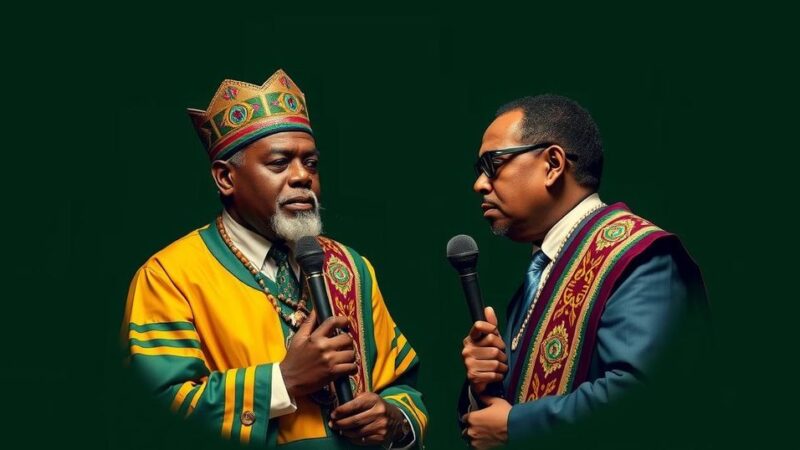The resignation of Algerian President Abdelaziz Bouteflika on April 2, 2019, amid widespread protests has sparked an ongoing demand for systemic change in the political landscape. A survey of over 9,000 Algerians reveals overwhelming public support for the protests and a desire for democracy, while a distinct division exists between the perspectives of junior military personnel and senior officers, indicating potential conflict regarding military privileges moving forward.
On April 2, 2019, the resignation of Algerian President Abdelaziz Bouteflika marked a significant turning point in the nation’s political landscape, making him the fifth Arab leader to be unseated by popular protests since the wave of uprisings began in 2011. The protests have persisted beyond his resignation, with demonstrators demanding the dismantling of the entire ruling regime. In light of these events, an extensive online survey encompassing over 9,000 Algerians was conducted to assess the general populace’s sentiments towards the ongoing protests and their aspirations for change. Notably, the survey also included responses from 1,700 military personnel, allowing for a comparative analysis between the perspectives of civilian protesters and military members. The findings indicate that a sizable majority of Algerians endorse the protest movement and advocate for a thorough overhaul of the current political framework. Both participants in the protests and those who do not actively protest expressed profound dissatisfaction with pervasive corruption within the government and a shared preference for a transition towards democratic governance. Interestingly, while the lower ranks of the military—comprising enlisted soldiers and junior officers—largely resonate with the protesters’ demands for reform, a stark divergence exists among senior military officials who exhibit greater resistance to such changes. As the situation unfolds, it is anticipated that significant tensions may arise between protesters and military personnel across all hierarchical levels concerning the military’s enduring political and economic privileges in the post-Bouteflika era.
The Algerian uprising represents a historical moment in the Arab world, echoing a desire for systemic change across various nations. Following the ousting of long-standing leaders in several Arab countries since 2011, Algeria’s protests have centered on the urgent need to address corruption and demand a shift towards democratic governance. President Bouteflika’s resignation catalyzed public discontent, yet the conflicts between military interests and civilian aspirations continue to shape the dynamics of the protest movement as Algerians seek to redefine their political landscape devoid of autocratic structures.
In conclusion, the uprising in Algeria signifies a critical moment of potential change, driven by a widespread call for comprehensive political reforms and a discontent with systemic corruption. The divide between the military’s upper echelons and the desires of both the rank-and-file soldiers and the civilian protesters highlights the complex interplay of power and advocacy for transparency and democracy. As protests evolve, understanding these dynamics will be vital for anticipating the future trajectory of Algeria’s political environment.
Original Source: www.brookings.edu





